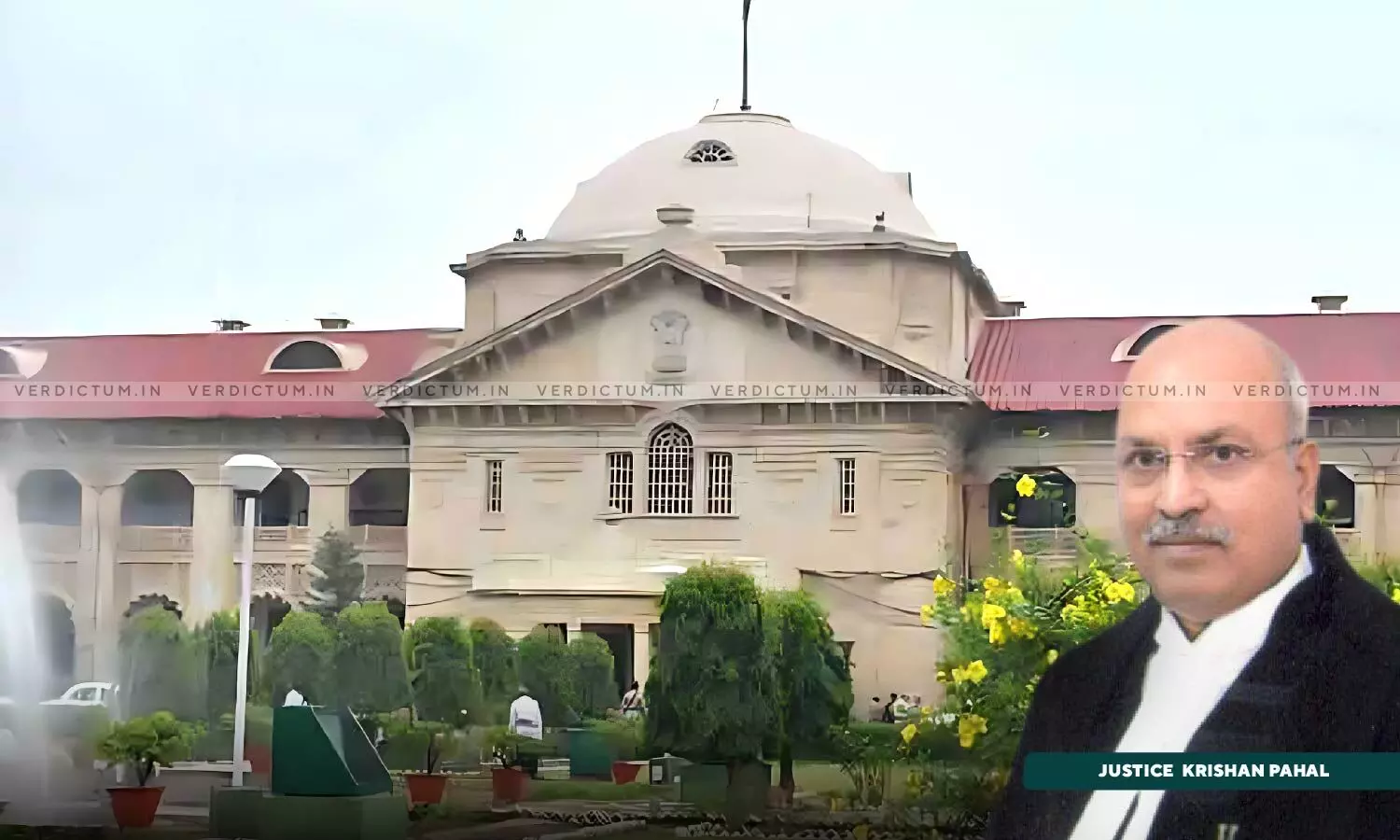
No Obligatory Requirement To Secure Prior Sanction For Institution Of FIR Against A Public Servant: Allahabad HC
 |
|The Allahabad High Court observed that there is no mandatory need for prior sanction for lodging an FIR and conducting an investigation, even against a public servant.
The Court also noted that if obtaining sanction is required for commencing legal proceedings, it should be obtained when presenting the charge sheet before the magistrate and when the magistrate takes cognizance of the matter.
“For institution of a First Information Report (FIR) and investigation thereupon, there is no obligatory requirement to secure prior sanction, even against a public servant, as per the mandate of Section 197 of the Code of Criminal Procedure, 1973. It shall equally apply to the persons charged under The Passports Act, 1967. When obtaining sanction is a prerequisite for initiating legal proceedings, it must be secured at the stage of presentation of charge sheet before the magistrate and taking of the cognizance thereupon”, the Bench of Justice Krishan Pahal observed.
Advocate Harsh Vardhan Singh appeared for the Applicant and Additional General Advocate Ram Mohit Yadav appeared for the State.
The application sought anticipatory bail concerning an FIR, involving alleged offences under Sections 419, 420, 467, 468 and 471 of the Indian Penal Code, 1860 (IPC), and Section 12 of the Passport Act, 1967 (Act). The prosecution alleged that Ranjeet, son of Ram Bahadur, obtained three passports under different names.
The Court noted that according to Section 197 of the Code of Criminal Procedure, 1973 (CrPC), there's no obligatory requirement to obtain prior sanction for lodging an FIR and conducting an investigation, even for public servants or individuals charged under the Act. If a sanction is necessary, it must be obtained before presenting the charge sheet to the magistrate and taking cognizance.
The Court referred to the case of P. Prathapachandran v Central Bureau of Investigation [1999 CrLJ 2002 (Ker)], and noted that the relevant time for sanction to prosecute under Section 19(1)(c) of the Act is when the court is about to take cognizance of the offence. Thus, the Applicant's objections to the validity of the sanction and the authority of the officer who granted it are unfounded.
The Court noted, “that the point of time relevant for the competent authority to accord sanction to prosecute under Section 19(1)(c) of the Act is the time when the Court is called upon to take cognizance of the offence. Therefore, the contention raised by the petitioner against the validity of the sanction accorded under Section 19(I)(c) of the Act and the competency of the officer who granted the sanction are untenable”.
Referring to R.S. Nayak v A.R. Antulay [(1984) 2 SCC 183], the Court reiterated that a valid sanction is necessary before taking cognizance of enumerated offences, it was concluded that the argument against the availability of sanction during the FIR or investigation stage lacks merit. Therefore, no sanction is needed for the investigation in this case.
“Eminent jurist Benjamin N. Cardozo in his book ‘Nature of the Judicial Process’ at page 70 has stated "The general framework furnished by the statute is to be filled in for each case by means of interpretation, that is, by following out the principles of the statute. In every case, without exception, it is the business of the court to supply what the statute omits, but always by means of an interpretative function”, the Bench added.
Furthermore, the Court observed that the criteria for granting protection under Section 438 of the CrPC differ from those under Section 439. Anticipatory bail aims to protect individual rights, preventing the misuse of arrest powers and shielding innocent individuals from harassment. However, it poses a challenge in balancing individual rights with the interests of justice.
Accordingly, the Court dismissed the Application.
Cause Title: Ranjeet v State of U.P. (2024:AHC:24501)
Applicant(s): Advocates Harsh Vardhan Singh, Naveen Tiwari and Ritik Raj
Respondent(s): Additional General Advocate Ram Mohit Yadav